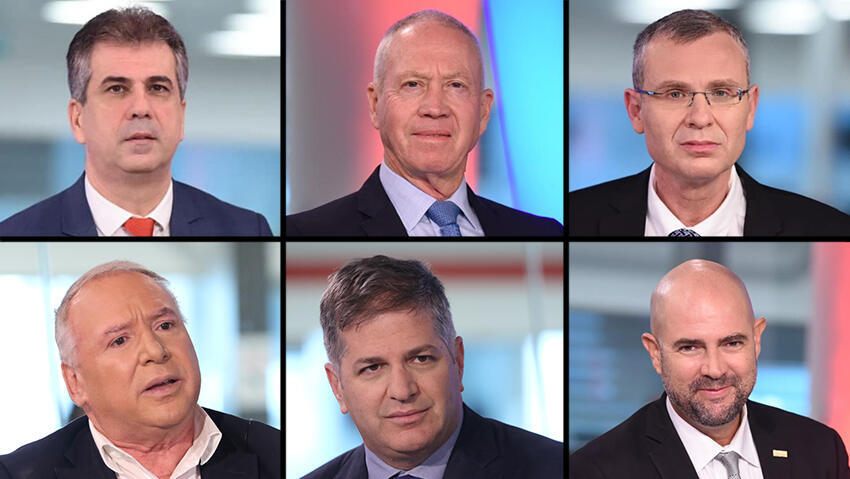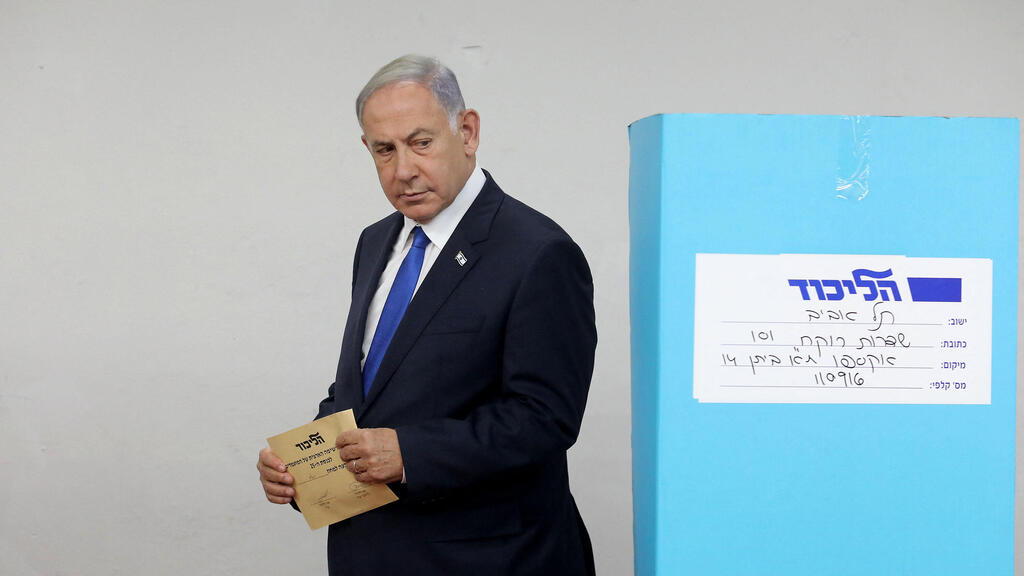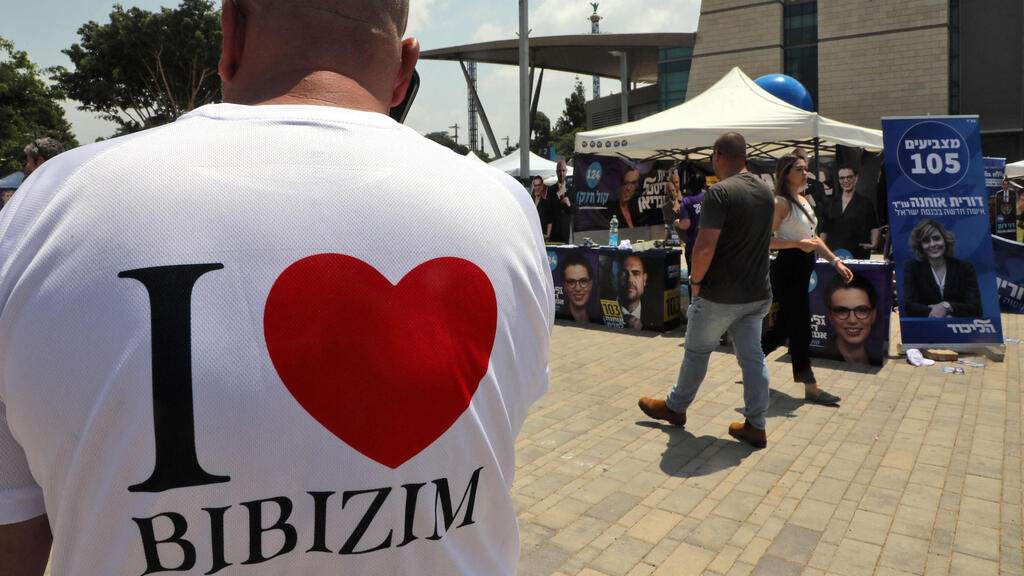The early exit polls of primary elections in Likud show loyalists of the factions leader and former premier, Benjamin Netanyahu, appear to be take the top spots in the party's electoral slate.
With 90% of the votes counted, the candidates which party will send to the Knesset following the general election on November 1 appear to be Yariv Levin, Eli Cohen, Yoav Gallant, Amir Ohana, Dudi Amsalem, and Yoav Kisch - all ardent followers of the veteran leader, who backed decisively in his last term as premier.
A former challenger to faction leader and a Likud veteran, Yuli Edelstein, is currently placed at 24rd spot on the party's list, in what looks to be a major upset.
Edelstein intended to run against Netanyahu after finishing first in the last primaries, but eventually backed down and it looks like the loyal voters punished the former health minister for standing up to the party leader - who is ranked first and will remain at the faction's helm.
Such a low placement on the electoral slate might leave Edelstein out of the Knesset altogether. However, if the Likud will be tasked with forming a government after the November 1 vote, he could still make it into parliament under the Norwegian Law, whereby an MK can resign from the Knesset and free his seat to the next candidate on the list.
In the battle between potential Netanyahu successors, former Jerusalem Mayor Nir Barkat looks to be leading former Finance Minister Israel Katz.
3 View gallery


Top Likud candidates from top left to right: Eli Cohen, Yoav Gallant, Yariv Levin, Dudi Amsalem, Yoav Kisch and Amir Ohana
(Photo: Kobi Konaks, Avi Mualem)
In addition, several spots which Netanyahu asked to ensure in the list were confirmed by the voters, a move that highlights the support of the veteran leader.
Another Netanyahu loyalist, Miri Regev, will most likely clinch the 10th spot since the place is supposed to be occupied by a woman according to the rules, in order to increase the number of female representatives in the Knesset.
Besides Regev, there are no other female candidates expected to be elected to top spots.
However, the Likud has promised a larger female representation in the party, so some of them will likely be "promoted" to higher spots despite receiving a low number of votes.
The polls closed on Wednesday around 10:30pm, with some 58%, out of the 140,000 registered voters, casting their ballots - making up 79,735 of votes in total, similar to the 2019 primaries.
Voters had to pick a total of 13 candidates, 12 on the national list, and another candidate who will represent the district they belong to. Some 70 candidates were registered in the national electoral slate, and 40 other contenders in the regional district slots.



